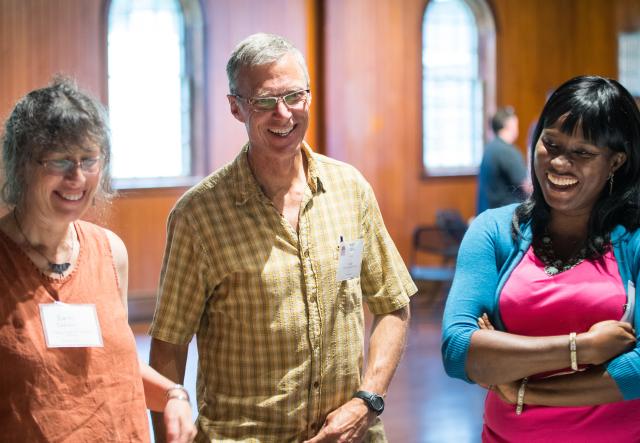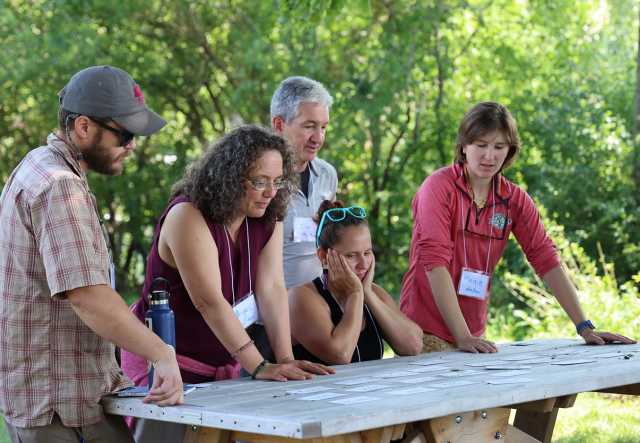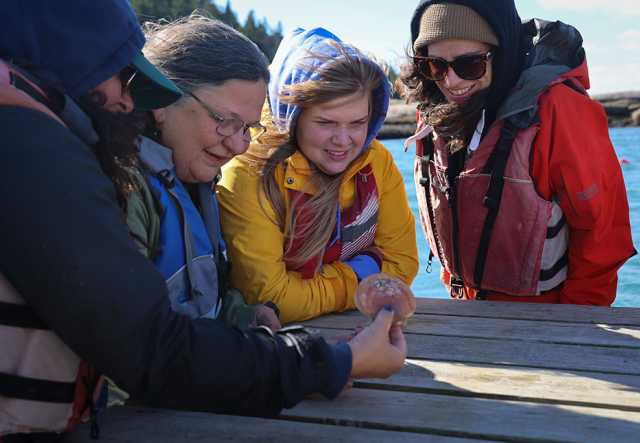STIMULATING! THANKS!
Meet Three Teachers Transformed by the Education for Sustainability Graduate Certificate Program

What does transformation look like? For teachers in the Education for Sustainability Graduate Certificate program, it can look quiet and contemplative. But bubbling beneath the surface are exciting reimaginings of the purpose and possibilities of education.
Facilitated by faculty from the Shelburne Farms Institute for Sustainable Schools and the University of Vermont College of Education and Social Services, the certificates guide participants—practicing educators in schools or other settings—through three core courses. Along the way, teachers build their knowledge of EFS, find community, and often leave with a new or reinvigorated approach to teaching and learning.
And what is Education for Sustainability? Here’s how teacher Jess Angell, a graduate of the certificate, describes it:
Education for Sustainability is about centering relationships in learning—between people, place, and the natural world. It’s a way of teaching that nurtures agency, empathy, and action. In this moment of ecological and social tipping points, we can’t afford to educate for anything less than transformation. EFS empowers students to see themselves not just as learners, but as changemakers. And for me, it’s become a compass—helping me realign my teaching with what matters most.
Meet Jess and two more extraordinary educators in the certificate program below.
Jess Angell, Science Teacher, Assistant Science Department Chair & Sustainability Coordinator
St. Johnsbury Academy, Vermont
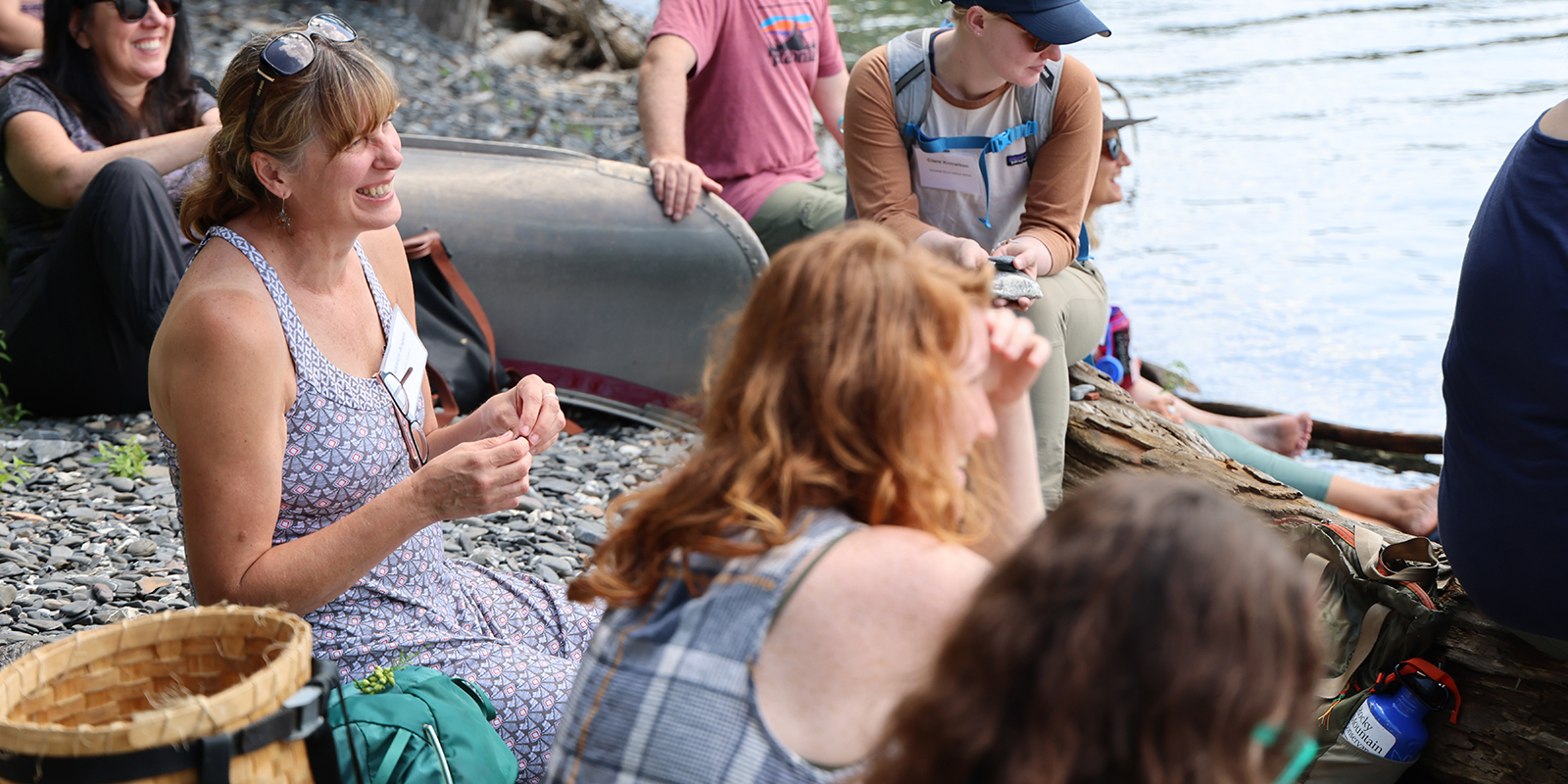
What’s changed since beginning the program: “I place a stronger emphasis on experiential, place-based, and student-led learning. I’ve launched a new sustainability course that integrates community partnerships and student-driven projects, allowing learners to engage deeply with real-world issues. This shift has created a more dynamic and interactive classroom environment where students take ownership of their learning and make meaningful connections to the world around them.”
A memorable program moment: “It was a class visit to the Market Garden, where we spent time picking berries—but not in a typical, extractive way. We were guided to think intentionally about which berries to pick and how our choices could support the health of the plants themselves. This act of mindful harvesting was framed through the lens of Robin Wall Kimmerer’s teachings on reciprocity—seeing the natural world not just as a provider of ecosystem services, but as a partner in a relationship based on mutual respect and gratitude. The idea of the berries as gifts rather than commodities deeply resonated with me, and it’s something I return to often when considering how I interact with the natural world.”
Transformation she’d like to spark: “I want to create a cohesive sustainability pathway for students, one that spans all four years of high school and helps them grow into informed, empathetic, and active global citizens. To support that, I’m working toward a whole-school approach to sustainability—one that weaves EFS principles into curriculum, campus practices, and community partnerships. This means reimagining our school culture so that stewardship, systems thinking, and social justice are not just themes in a course, but values that show up in how we make decisions, design spaces, and engage with the wider community. I envision students leading stewardship initiatives, faculty collaborating across disciplines to embed sustainability into their teaching, and our school serving as a model for regenerative, place-based education in our region.”
Katherine McHenry, Science Teacher
Hanover High School, Massachusetts
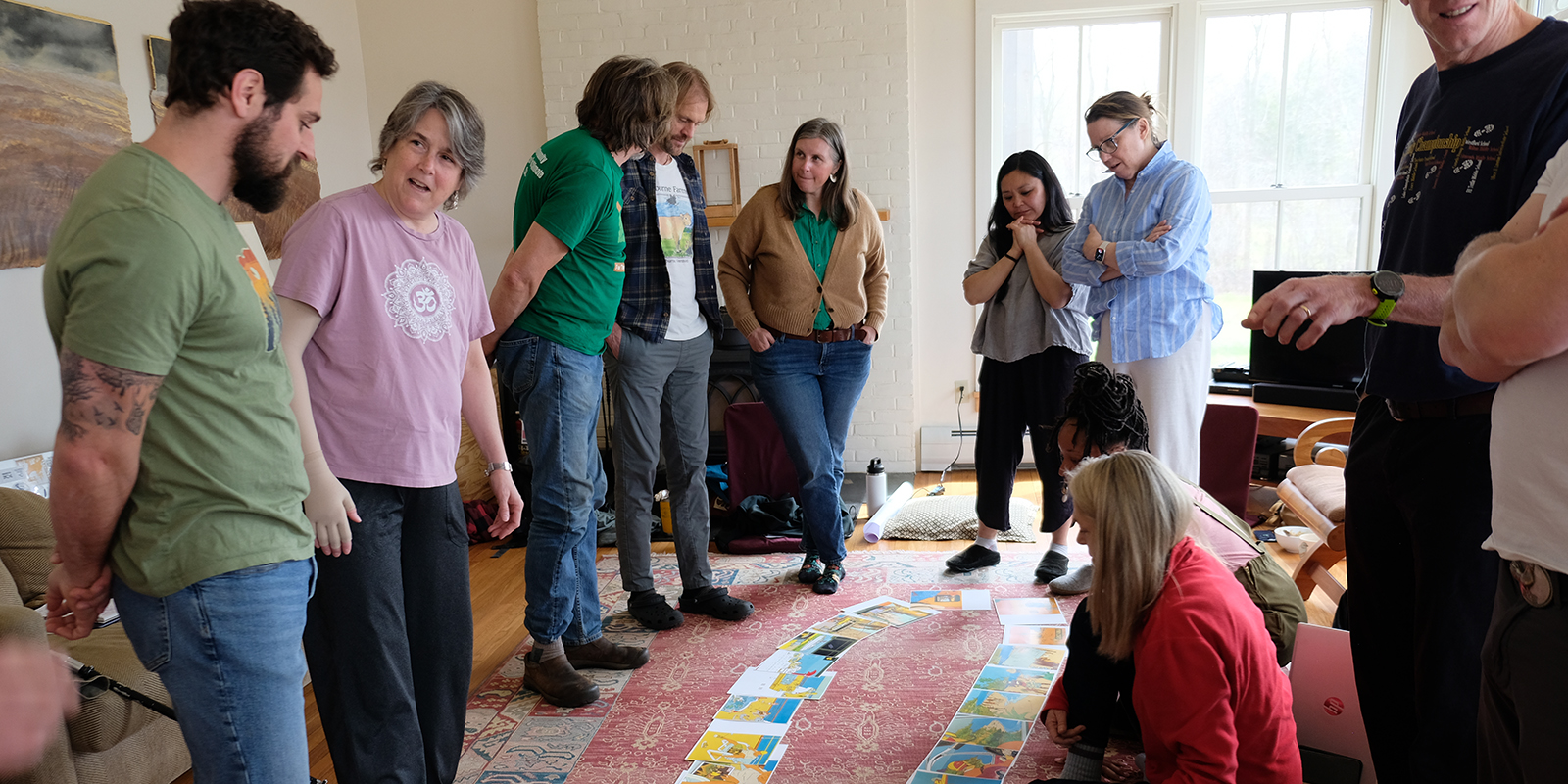
Her certificate experience in three words: “Enlightening, challenging, and reassuring. Reassuring because there’s people out there working for the greater good.”
A memorable moment: “The first day of my first course, Foundations in EFS, one of the facilitators, Aimee, read a script that acknowledged the land we were on. I just sat there and thought, I’m home. I’m in a circle with a bunch of strangers, but these are my people. This is where I belong. It was profound.”
What’s transformed in her practice: “On a personal level, the program has made me look at who I am and what I want to change. Educating kids is not just about the facts; it’s also about making a connection to the land and recognizing that we as a society are in this rut of domination and consumption. We need to question not only how we view the environment but how that view has been passed down over generations, and what we want to do differently going forward. It was a personal shift in thinking, but it’s one I’m trying to share with my students.
“The program has also taught me to appreciate place-based education. You’re not going to protect the earth if you don’t appreciate it, and you’re not going to appreciate it if you don’t get outside. So, at a basic level, I’ve started taking my environmental science students outside to do sit-spots and reflect on and appreciate our place.” Katherine plans to retire from classroom teaching in the fall and devote herself to land-based education.
Mat Heald, Global Citizenship Teacher
BFA Fairfax High School, Vermont
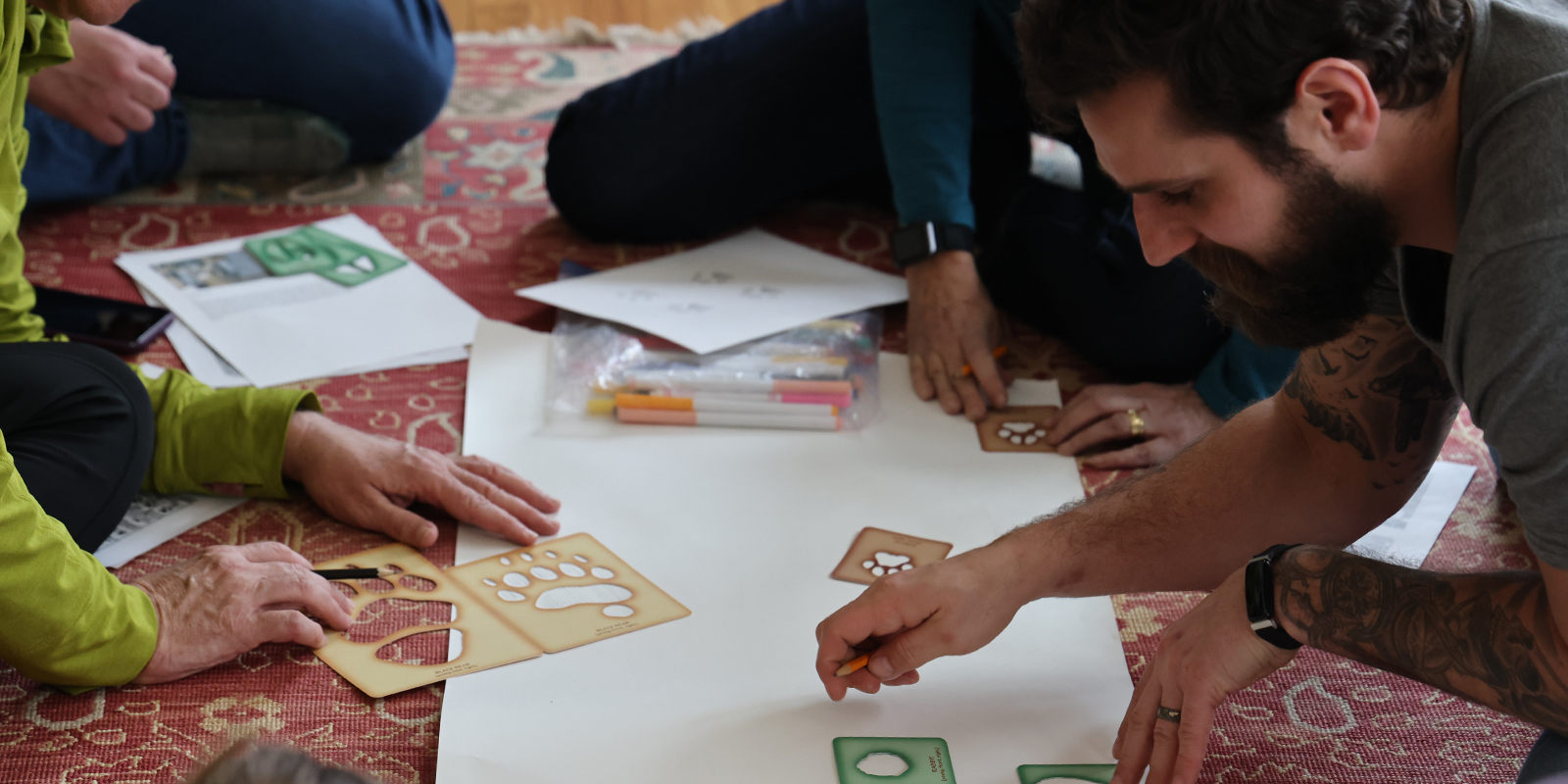
What EFS means to him: “It’s up to us to help educate leaders that can take part in solving the world’s largest problems. Solving these issues requires thinking about the world through interconnection rather than in isolation. Understanding how systems interact is critical for implementing sustainable change. This is the focus of my Global Connections class, where students learn about the UN’s Sustainable Development Goals and how they are relevant to our own community. For example, one team of students working on Sustainable Development Goal 3, Good Health and Wellbeing, went outside and noticed that the walking trails behind our school were in poor condition and underutilized by the people of our town. They are currently in the process of collaborating with community members to develop a sustainable solution to restore the paths and encourage more public use.”
A shift he’s made in his practice: “Being in the EFS program has made me realize how crucial it is for our students to learn to think in systems. I’ve also implemented more chances for outdoor learning in my classes. One pillar of EFS is to have students spend time in the outdoor environment in order to build a better understanding of ‘place.’ With this new approach, my students have gotten outside to do fieldwork.”
What’s next: “I want to empower students to be active members of their community through authentic learning opportunities that change their role from consumers of knowledge to active changemakers. My goal over the next few years is to create an alternative pathway at our high school. The idea is that students would elect to participate in full-day, place-based learning immersion that goes beyond the typical classroom setting. Students can focus on engaging with their passions while simultaneously helping our local and global community become more equitable and sustainable through interdisciplinary projects.”
You may also like
Comments
I graduated from A Trail to every Classroom many years ago and did workshops at Shelburne Farms. You taught me to consider my role as a teacher in a new, integrated system, and today I teach in a public charter school in a Forest Classroom for fourth grade all year. It is a transformative year in our school and is healing the many layers of damage created by Covid and screen technology, both of which are generating deep emotional trauma in our students.


